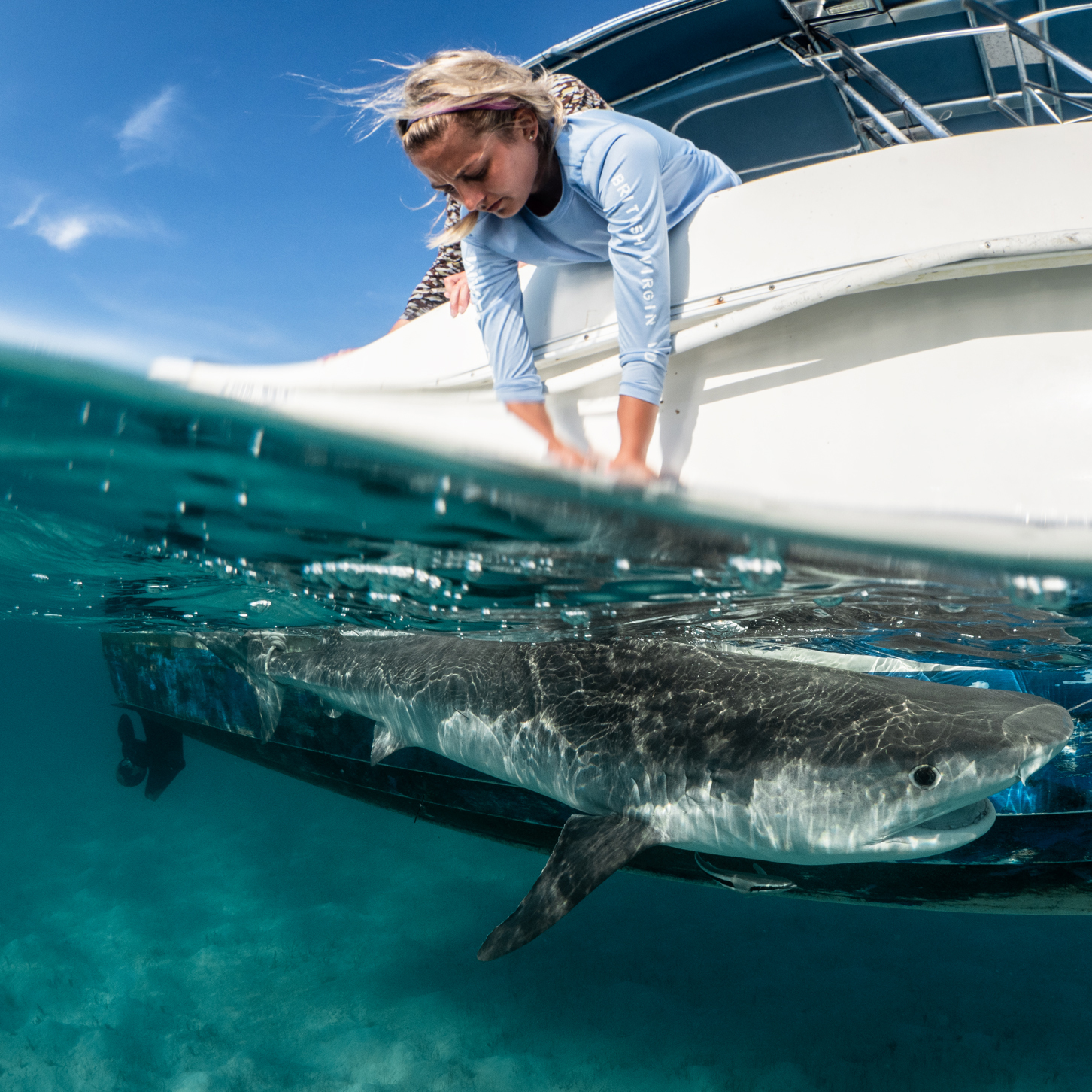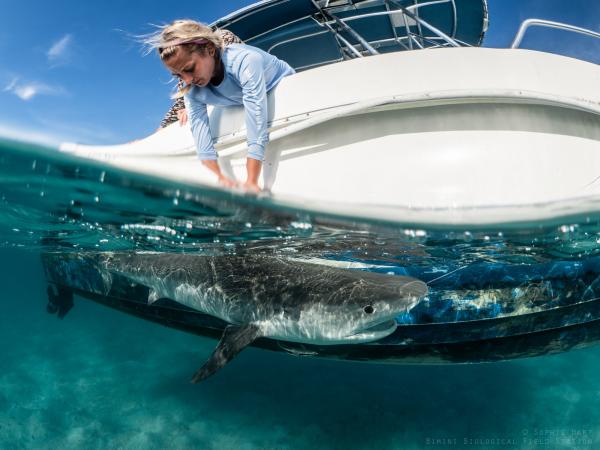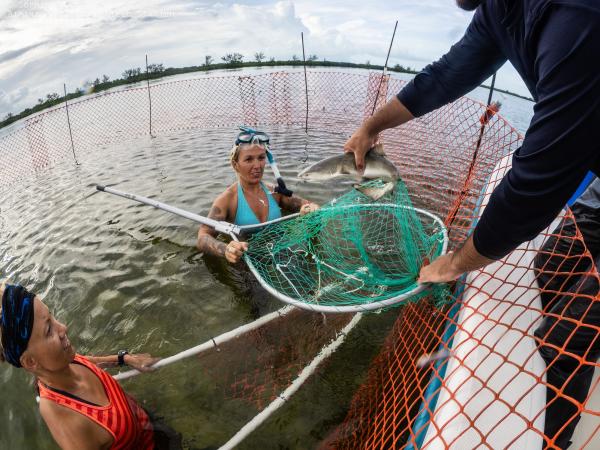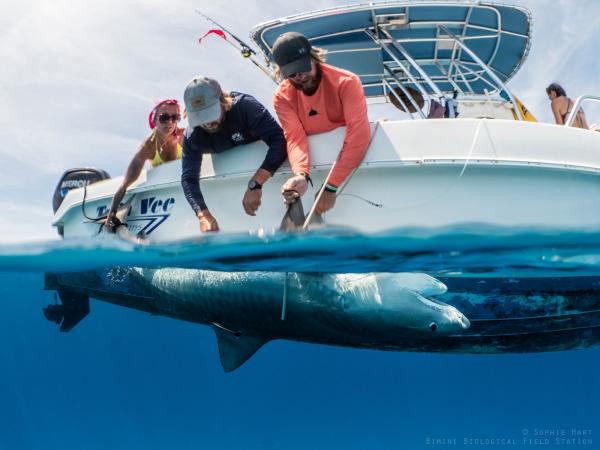KID REPORTERS’ NOTEBOOK
The Truth About Sharks


An intern at the Bimini “Shark Lab” holds the dorsal fin of a tiger shark during an examination.
“We’ve come a long way in terms of how the public understands sharks and how important they are for a healthy and balanced ecosystem,” says Kristene Parsons, a senior scientist and lab director at the Bimini Biological Field Station Foundation in the Bahamas.
Still, misconceptions about sharks persist, Parsons told me during a recent phone interview. “Unfortunately, people tend to fear what they don’t understand,” she added.
Parsons has been fascinated by sharks since childhood. At the age of 7, she sat in front of an aquarium for more than two hours, staring at a nurse shark.
Now, having earned a PhD from the Virginia Institute of Marine Science, College of William & Mary, Parsons is living her dream as a marine scientist at the Bimini “Shark Lab.”

A juvenile lemon shark is released after an annual project to collect data on the species. Researchers braved thunderstorms and bug bites during their 12-night study of 201 lemon sharks.
THREATENED BY OVERFISHING
Bimini, which was founded in 1990, is dedicated to deepening our understanding of marine animals, especially sharks and rays; raising awareness about threats to these species; and heading up conservation efforts.
Sharks as we know them began to appear about 100 million years ago. There are more than 470 species. Great white sharks, mako sharks, and others are at the top of the underwater food chain. But many of these species are threatened by human activity.
“A lot of shark species have been overfished,” Parsons said. “Now there aren’t enough to produce the next generation.”

Lab managers hold the pectoral fins and tail of a large tiger shark while an investigator gathers biological data.
DEADLY INCIDENTS IN THE NEWS
Deadly encounters with sharks, like the recent events in California and Massachusetts, can harm sharks’ reputation further and encourage the unnecessary killing of such creatures.
“Marine biologists don’t like to use the words ‘shark attack,’” Parsons said. “Often, it’s just an investigation, and the sharks are not actually attacking anyone.”
Typically, what happens in such cases is that a shark will misidentify a human as a normal prey, resulting in the types of incidents that make headlines.
Still, instances of people being bitten by a shark are extremely rare. Experts say that any potential danger can be avoided by following simple rules, including swimming in a group, not wandering too far from shore, and avoiding areas that are being fished.
If sharks become extinct or endangered, the balance of predator and prey in the marine ecosystem will be severely altered. Parsons and her team are trying to protect that balance. On any given you day, you can find them in the Bahamas tagging fish, analyzing and collecting data, or catching baby sharks with a gill net in order to study their behavior.
